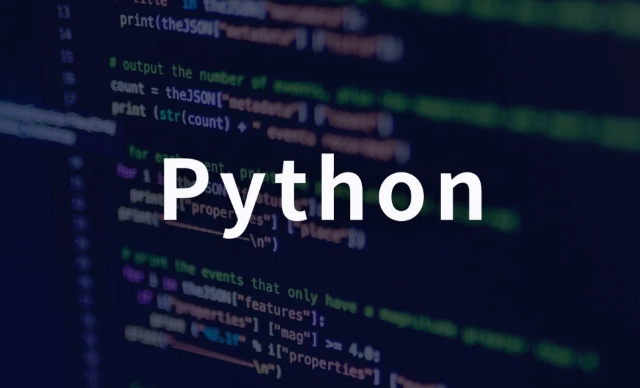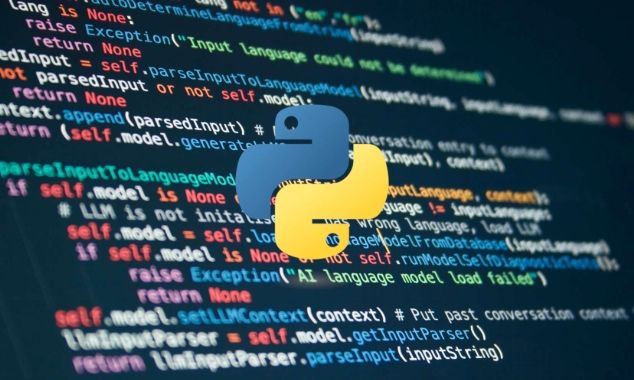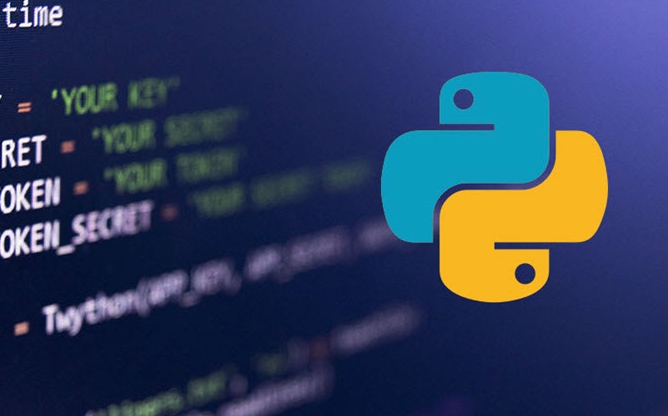Building Cross-Platform Games with Python Pygame
Aug 01, 2025 am 06:38 AMYes, Pygame can be used to develop cross-platform games, but the following points should be noted: 1. Pygame relies on Python's platform support and can run on Windows, macOS and Linux, but the installation method and some functions may be different. Platform-specific code should be avoided; 2. Use tools such as PyInstaller to package the game into independent executable files for each platform, but it needs to be built separately and pay attention to anti-virus software false alarms; 3. The input and display need to be adapted to different devices. It is recommended to use dynamic scaling, avoid hard-coded locations, and handle fonts with caution; 4. Pygame does not support mobile and web-page. If you need these platforms, it is recommended to use other engines instead. Following these key points can effectively realize cross-platform development of Pygame.

Python's Pygame library is a great tool for beginners who want to get into game development. While it's not the most powerful or modern game engine out there, it offers a simple and accessible way to create 2D games. However, one question many developers have is whether Pygame can be used to build cross-platform games — and if so, how to do it effectively.

The short answer is: yes, Pygame can be used for cross-platform development, but with some caveats. Here's what you need to know.
1. Pygame Runs Where Python Runs (Mostly)
Pygame is built on top of Python, which means it benefits from Python's wide platform support. If you write your game using standard Pygame features, it should run on any platform that supports Python and Pygame — including Windows, macOS, and Linux.

However, there are a few gotchas:
- Pygame installation can vary across platforms . On Windows, it's usually a simple
pip install pygame. On macOS and Linux, you may need to install additional dependencies or use specific commands. - Some features may behave differently . For example, font rendering or file path handling might different slightly between systems.
- Avoid platform-specific code . If you use something like
os.system()to run Windows commands, your game won't work on macOS or Linux.
To keep things smooth:

- Use relative paths for assets.
- Stick to standard libraries when possible.
- Test your game on multiple platforms early and often.
2. Packaging for Multiple Platforms
Creating a runnable version of your game for different operating systems is a common goal in cross-platform development. Pygame doesn't come with built-in packaging tools, but you can use third-party tools like PyInstaller , cx_Freeze , or Nuitka to create standalone executables.
Here's a quick idea of how that works with PyInstaller:
- Install PyInstaller:
pip install pyinstaller - Navigate to your project folder
- Run:
pyinstaller --onefile your_game.py - You'll find the executable in the
dist/folder
Some things to keep in mind:
- The output execute is platform-specific — you need to build it separately for each OS.
- Some anti-virus programs may flag PyInstaller builds as suspicious (false positives).
- Game assets (images, sounds) need to be bundled correctly — sometimes this requires extra configuration.
3. Handling Input and Display Across Devices
When building a cross-platform game, input handling and screen resolution can vary significantly between devices. Pygame abstracts most of this, but there are still some important points to consider:
- Keyboard and mouse input are generally consistent across platforms, but if you're targeting mobile or touch devices (which Pygame doesn't support natively), you'll need to rethink the control scheme.
- Screen resolution and scaling should be handled gracefully. You can use Pygame's
pygame.display.set_mode()withpygame.RESIZABLEorpygame.FULLSCREENflags to make your game more adaptable. - Font rendering can look different on each OS. To minimize issues, either bundle your own fonts or use system fonts that are likely to be available on all platforms.
If you want your game to scale well:
- Use dynamic scaling based on screen size
- Avoid hardcoding positions
- Consider adding a settings menu for resolution and controls
4. Limitations When Targeting Mobile or Web
If you're hoping to run your Pygame game on mobile (iOS/Android) or in a browser (HTML5), you'll hit a wall. Pygame doesn't support these platforms directly. There are some experimental tools and forks like Pygame Subset for Android (PGS4A) or Kivy , but they require significant changes to your codebase.
For web deployment, you might look into Pyodide or Transcrypt , but again, these aren't drop-in replacements and may not support all Pygame features.
So, if you want true mobile or web support:
- Consider switching to a more modern engine like Godot or Unity
- Or use Pygame strictly for desktop development
Building cross-platform games with Pygame is totally doable — especially for desktop platforms. Just keep your code clean, test on different systems, and be realistic about the limitations. It's a solid choice for learning and small-scale projects, even if it's not the best fit for mobile or web.
That's about it.
The above is the detailed content of Building Cross-Platform Games with Python Pygame. For more information, please follow other related articles on the PHP Chinese website!

Hot AI Tools

Undress AI Tool
Undress images for free

Undresser.AI Undress
AI-powered app for creating realistic nude photos

AI Clothes Remover
Online AI tool for removing clothes from photos.

Clothoff.io
AI clothes remover

Video Face Swap
Swap faces in any video effortlessly with our completely free AI face swap tool!

Hot Article

Hot Tools

Notepad++7.3.1
Easy-to-use and free code editor

SublimeText3 Chinese version
Chinese version, very easy to use

Zend Studio 13.0.1
Powerful PHP integrated development environment

Dreamweaver CS6
Visual web development tools

SublimeText3 Mac version
God-level code editing software (SublimeText3)
 PHP calls AI intelligent voice assistant PHP voice interaction system construction
Jul 25, 2025 pm 08:45 PM
PHP calls AI intelligent voice assistant PHP voice interaction system construction
Jul 25, 2025 pm 08:45 PM
User voice input is captured and sent to the PHP backend through the MediaRecorder API of the front-end JavaScript; 2. PHP saves the audio as a temporary file and calls STTAPI (such as Google or Baidu voice recognition) to convert it into text; 3. PHP sends the text to an AI service (such as OpenAIGPT) to obtain intelligent reply; 4. PHP then calls TTSAPI (such as Baidu or Google voice synthesis) to convert the reply to a voice file; 5. PHP streams the voice file back to the front-end to play, completing interaction. The entire process is dominated by PHP to ensure seamless connection between all links.
 How to use PHP combined with AI to achieve text error correction PHP syntax detection and optimization
Jul 25, 2025 pm 08:57 PM
How to use PHP combined with AI to achieve text error correction PHP syntax detection and optimization
Jul 25, 2025 pm 08:57 PM
To realize text error correction and syntax optimization with AI, you need to follow the following steps: 1. Select a suitable AI model or API, such as Baidu, Tencent API or open source NLP library; 2. Call the API through PHP's curl or Guzzle and process the return results; 3. Display error correction information in the application and allow users to choose whether to adopt it; 4. Use php-l and PHP_CodeSniffer for syntax detection and code optimization; 5. Continuously collect feedback and update the model or rules to improve the effect. When choosing AIAPI, focus on evaluating accuracy, response speed, price and support for PHP. Code optimization should follow PSR specifications, use cache reasonably, avoid circular queries, review code regularly, and use X
 How to develop AI intelligent form system with PHP PHP intelligent form design and analysis
Jul 25, 2025 pm 05:54 PM
How to develop AI intelligent form system with PHP PHP intelligent form design and analysis
Jul 25, 2025 pm 05:54 PM
When choosing a suitable PHP framework, you need to consider comprehensively according to project needs: Laravel is suitable for rapid development and provides EloquentORM and Blade template engines, which are convenient for database operation and dynamic form rendering; Symfony is more flexible and suitable for complex systems; CodeIgniter is lightweight and suitable for simple applications with high performance requirements. 2. To ensure the accuracy of AI models, we need to start with high-quality data training, reasonable selection of evaluation indicators (such as accuracy, recall, F1 value), regular performance evaluation and model tuning, and ensure code quality through unit testing and integration testing, while continuously monitoring the input data to prevent data drift. 3. Many measures are required to protect user privacy: encrypt and store sensitive data (such as AES
 python seaborn jointplot example
Jul 26, 2025 am 08:11 AM
python seaborn jointplot example
Jul 26, 2025 am 08:11 AM
Use Seaborn's jointplot to quickly visualize the relationship and distribution between two variables; 2. The basic scatter plot is implemented by sns.jointplot(data=tips,x="total_bill",y="tip",kind="scatter"), the center is a scatter plot, and the histogram is displayed on the upper and lower and right sides; 3. Add regression lines and density information to a kind="reg", and combine marginal_kws to set the edge plot style; 4. When the data volume is large, it is recommended to use "hex"
 How to use PHP combined with AI to analyze video content PHP intelligent video tag generation
Jul 25, 2025 pm 06:15 PM
How to use PHP combined with AI to analyze video content PHP intelligent video tag generation
Jul 25, 2025 pm 06:15 PM
The core idea of PHP combining AI for video content analysis is to let PHP serve as the backend "glue", first upload video to cloud storage, and then call AI services (such as Google CloudVideoAI, etc.) for asynchronous analysis; 2. PHP parses the JSON results, extract people, objects, scenes, voice and other information to generate intelligent tags and store them in the database; 3. The advantage is to use PHP's mature web ecosystem to quickly integrate AI capabilities, which is suitable for projects with existing PHP systems to efficiently implement; 4. Common challenges include large file processing (directly transmitted to cloud storage with pre-signed URLs), asynchronous tasks (introducing message queues), cost control (on-demand analysis, budget monitoring) and result optimization (label standardization); 5. Smart tags significantly improve visual
 PHP integrated AI emotional computing technology PHP user feedback intelligent analysis
Jul 25, 2025 pm 06:54 PM
PHP integrated AI emotional computing technology PHP user feedback intelligent analysis
Jul 25, 2025 pm 06:54 PM
To integrate AI sentiment computing technology into PHP applications, the core is to use cloud services AIAPI (such as Google, AWS, and Azure) for sentiment analysis, send text through HTTP requests and parse returned JSON results, and store emotional data into the database, thereby realizing automated processing and data insights of user feedback. The specific steps include: 1. Select a suitable AI sentiment analysis API, considering accuracy, cost, language support and integration complexity; 2. Use Guzzle or curl to send requests, store sentiment scores, labels, and intensity information; 3. Build a visual dashboard to support priority sorting, trend analysis, product iteration direction and user segmentation; 4. Respond to technical challenges, such as API call restrictions and numbers
 How to develop AI-based text summary with PHP Quick Refining Technology
Jul 25, 2025 pm 05:57 PM
How to develop AI-based text summary with PHP Quick Refining Technology
Jul 25, 2025 pm 05:57 PM
The core of PHP's development of AI text summary is to call external AI service APIs (such as OpenAI, HuggingFace) as a coordinator to realize text preprocessing, API requests, response analysis and result display; 2. The limitation is that the computing performance is weak and the AI ecosystem is weak. The response strategy is to leverage APIs, service decoupling and asynchronous processing; 3. Model selection needs to weigh summary quality, cost, delay, concurrency, data privacy, and abstract models such as GPT or BART/T5 are recommended; 4. Performance optimization includes cache, asynchronous queues, batch processing and nearby area selection. Error processing needs to cover current limit retry, network timeout, key security, input verification and logging to ensure the stable and efficient operation of the system.
 python list to string conversion example
Jul 26, 2025 am 08:00 AM
python list to string conversion example
Jul 26, 2025 am 08:00 AM
String lists can be merged with join() method, such as ''.join(words) to get "HelloworldfromPython"; 2. Number lists must be converted to strings with map(str, numbers) or [str(x)forxinnumbers] before joining; 3. Any type list can be directly converted to strings with brackets and quotes, suitable for debugging; 4. Custom formats can be implemented by generator expressions combined with join(), such as '|'.join(f"[{item}]"foriteminitems) output"[a]|[






